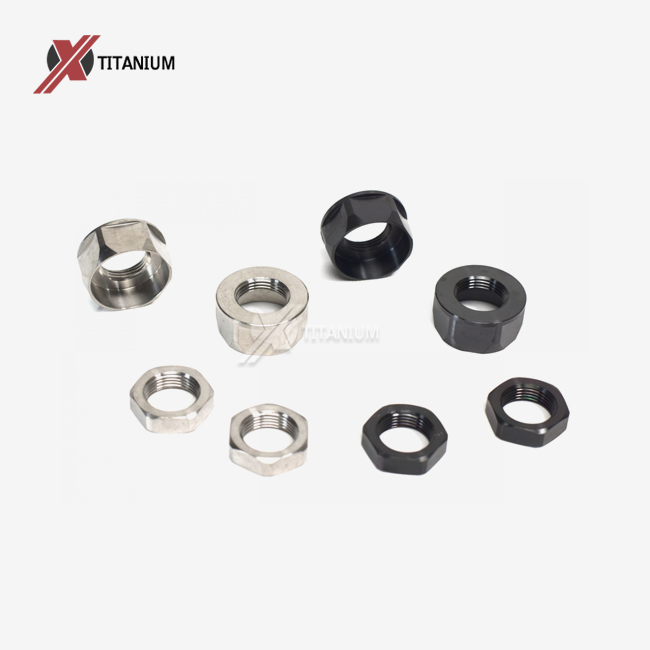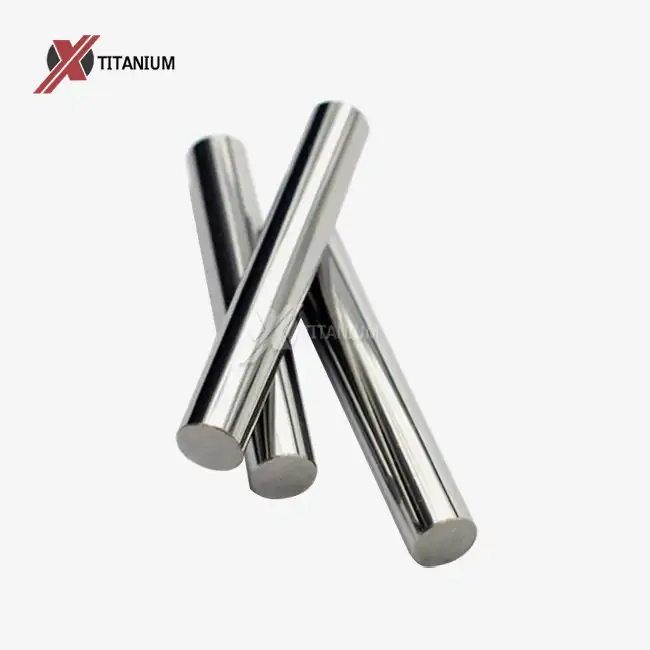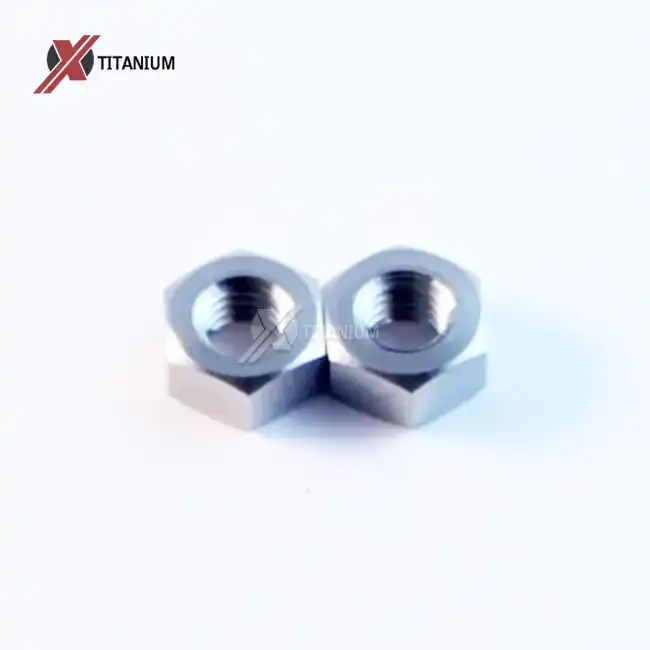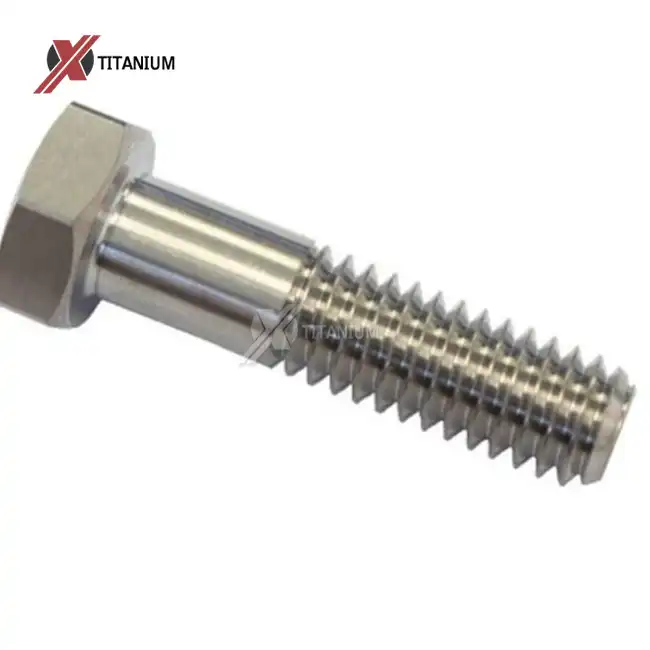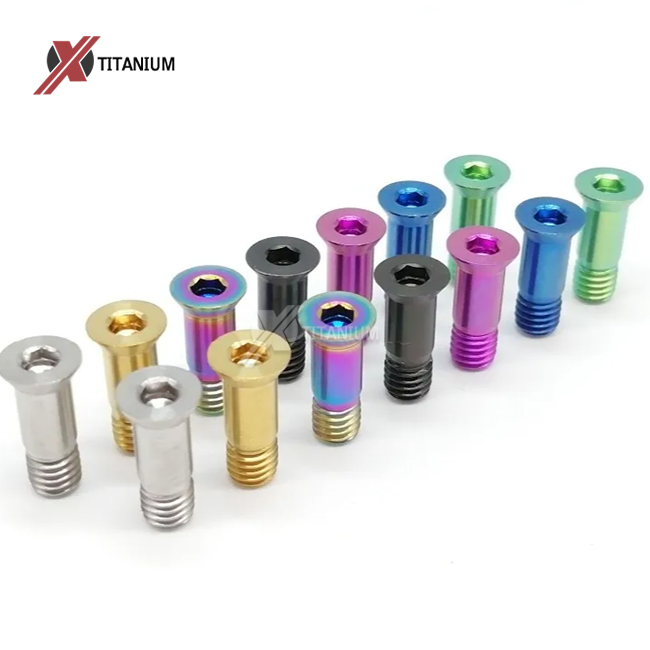Understanding Titanium Jam Nuts and Their Composition
What are Titanium Jam Nuts?
Titanium jam nuts are specialized fasteners designed to prevent loosening in high-vibration environments. These nuts are typically crafted from high-grade titanium alloys, such as Grade 5 (Ti-6Al-4V), which combines titanium with small amounts of aluminum and vanadium. This composition results in a fastener that boasts an impressive strength-to-weight ratio, making it ideal for applications where weight reduction is crucial.
The Unique Properties of Titanium
Titanium's exceptional characteristics extend beyond its corrosion resistance. This versatile metal exhibits remarkable tensile strength, rivaling that of steel while being significantly lighter. Its low thermal expansion coefficient ensures dimensional stability across a wide temperature range, a critical feature in precision engineering applications. Moreover, titanium's biocompatibility has led to its widespread use in medical implants and prosthetics.
Manufacturing Process of Titanium Jam Nuts
The production of titanium jam nuts involves sophisticated manufacturing techniques. Computer Numerical Control (CNC) machining is often employed to ensure precise dimensions and threading. Some manufacturers may opt for cold forming processes, which can enhance the mechanical properties of the nuts. Surface treatments like anodizing or nitriding can further improve the nuts' performance characteristics, offering additional protection against wear and corrosion.
Corrosion Resistance Mechanisms of Titanium Jam Nuts
The Science Behind Titanium's Corrosion Resistance
Titanium's exceptional corrosion resistance is attributed to its ability to spontaneously form a stable, continuous, and strongly adherent oxide film when exposed to oxygen. This passive layer, primarily composed of titanium dioxide (TiO2), acts as a barrier between the metal and its environment. The film is self-healing; if damaged, it quickly reforms in the presence of oxygen or water, providing continuous protection.
Comparison with Other Materials
When compared to stainless steel, another popular corrosion-resistant material, titanium often demonstrates superior performance in harsh environments. While both metals form protective oxide layers, titanium's film is more stable in a broader range of conditions. Unlike stainless steel, which can suffer from pitting corrosion in chloride-rich environments, titanium jam nuts maintain their integrity even in seawater applications.
Limitations and Considerations
Despite their impressive corrosion resistance, titanium jam nuts are not impervious to all forms of degradation. In extremely acidic environments or in the presence of certain fluoride compounds, the protective oxide layer can be compromised. Additionally, titanium is susceptible to hydrogen embrittlement under specific conditions, which can affect the mechanical properties of the jam nuts. It's crucial to consider these factors when selecting fasteners for specialized applications.
Applications and Benefits of Titanium Jam Nuts
Aerospace and Aviation
The aerospace industry extensively utilizes titanium jam nuts due to their exceptional strength-to-weight ratio and corrosion resistance. In aircraft construction, these fasteners play a critical role in securing components subjected to extreme vibrations and temperature fluctuations. The weight savings achieved by using titanium fasteners contribute to improved fuel efficiency and overall performance of aircraft.
Marine and Offshore Applications
In marine environments, where corrosion is a perennial challenge, titanium jam nuts prove invaluable. They are commonly used in shipbuilding, offshore oil rigs, and underwater equipment. The nuts' ability to withstand saltwater corrosion ensures long-term reliability and reduced maintenance requirements, crucial factors in these demanding applications.
Medical and Biomedical Fields
The biocompatibility of titanium makes it an excellent choice for medical applications. Titanium jam nuts find use in surgical instruments, dental implants, and prosthetic devices. Their corrosion resistance is particularly important in these contexts, as it prevents the release of metal ions into the body, reducing the risk of adverse reactions.
Chemical Processing and Industrial Applications
In chemical processing plants and other industrial settings, titanium jam nuts are employed where exposure to corrosive chemicals is a concern. Their resistance to a wide range of acids and alkalis makes them suitable for use in reactors, heat exchangers, and other equipment handling aggressive substances.
Racing and High-Performance Vehicles
The automotive racing industry values titanium jam nuts for their lightweight properties and durability. In high-performance vehicles, where every gram counts, these fasteners contribute to weight reduction without compromising strength. Their resistance to heat and corrosion also makes them ideal for use in exhaust systems and other high-stress areas.
Cost-Benefit Analysis
While titanium jam nuts are more expensive than their steel counterparts, their long-term benefits often justify the initial investment. The extended lifespan, reduced maintenance requirements, and enhanced performance in critical applications can lead to significant cost savings over time. In industries where failure is not an option, such as aerospace or medical fields, the reliability of titanium fasteners provides invaluable peace of mind.
Future Trends and Innovations
As material science advances, we can expect to see further improvements in titanium alloys and manufacturing processes. Research into nanotechnology and surface treatments may lead to even more corrosion-resistant titanium fasteners. Additionally, the growing emphasis on sustainability may drive increased adoption of titanium jam nuts due to their longevity and potential for recycling.
Conclusion
Titanium jam nuts exemplify the pinnacle of corrosion-resistant fastener technology. Their unparalleled combination of strength, lightness, and durability makes them indispensable in a wide array of demanding applications. From the depths of the ocean to the heights of aerospace engineering, these remarkable fasteners continue to prove their worth.
As industries push the boundaries of what's possible, titanium jam nuts stand ready to meet the challenge, securing our future with their unwavering resilience. For more information about titanium products and their applications, please don't hesitate to contact us at info@cltifastener.com or djy6580@aliyun.com. Our team of experts is always ready to assist you in finding the perfect titanium solution for your specific needs.
